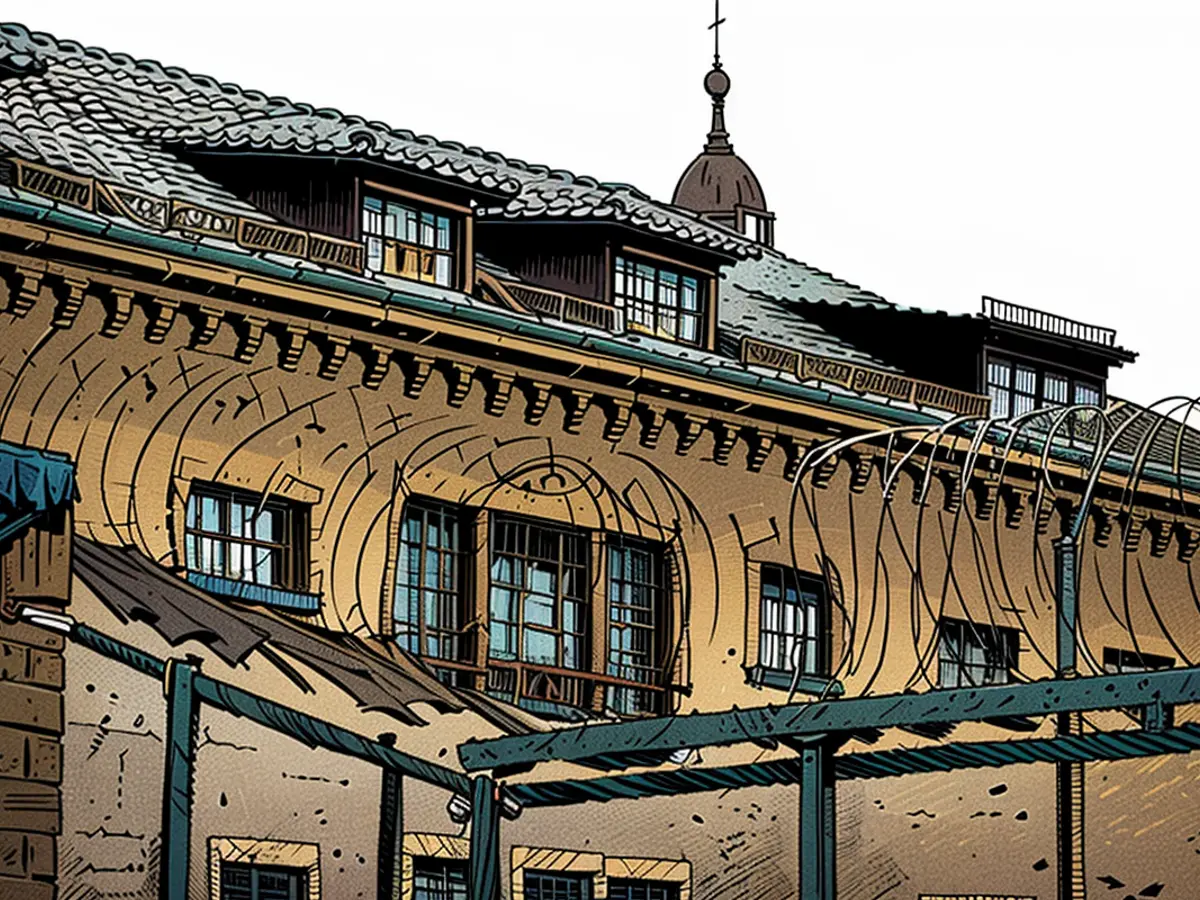punishments - Not enough spaces in detention - but relaxation soon?
To alleviate the shortage of places in Probation and Detention Centers in the Southwest, additional 54 places for mentally ill offenders and 50 places for addict offenders are to be established at the locations Wiesloch and Calw in the second half of the year. "The projects have made significant progress and it is expected that they will be commissioned in the second half of 2024," a spokesperson for the Social Ministry announces. In Wiesloch, this was planned for the beginning of the year, but it was delayed due to the insolvency of a company involved in construction.
Another establishment in Schwaebisch Hall is to open as planned in the first months of 2025 and offer 100 therapy places. This will also end the temporary use of the "Fawn Skin" in Heidelberg Heidelberg for probation and detention. The former prison currently houses around 60 patients. Another establishment is planned in Winnenden, but it will still take some time, the ministry spokesperson explains.
Offenders are released if they wait too long
In probation and detention centers, mentally ill and addict offenders are accommodated and treated. However, if no place is available for them there, they can be temporarily taken into protective custody and accommodated in a regular prison. They must be released - there is no fixed term for this - if the waiting time for a place becomes too long. This was the case for 31 offenders last year. According to a spokesperson for the Ministry of Justice, two offenders have been released prematurely this year.
According to the Social Ministry, 55 people were waiting for therapy in probation and detention centers by the end of May. 25 of them were in protective custody - 50 fewer than at the same time last year. It is difficult to say exactly how many places are missing in the country, the Social Ministry emphasizes. "A steadily increasing trend has been recognizable in recent years." By the end of June, 1,611 people were already accommodated in probation and detention centers (as of the end of June).
No new problem in the penal system
The problem is not new. There are more and more mentally disturbed prisoners in the penal system, says a spokesperson for the Ministry of Justice. When courts order probation and detention, a place is required.
In the Southwest, there are several institutions for probation and detention: These are the seven psychiatric centers (ZfP) with a total of nine locations in Bad Schussenried, Calw, Emmendingen, Reichenau, Weinsberg, Weissenau, Wiesloch, Zwiefalten and Heidelberg.
- The new establishments in Wiesloch and Calw aim to provide relief to the overcrowding issue in Probation and Detention Centers across Baden-Württemberg, seeking to accommodate 54 mentally ill offenders and 50 addict offenders.
- Delays in construction, such as the insolvency of a company involved, have caused the Wiesloch establishment to be postponed from its initial start this year.
- Once operational, the new Swabian Hall establishment will provide 100 therapy places, contributing to the reduction of overcrowding in Heidelberg's temporary facility, known as the "Fawn Skin."
- Offenders in Protective Custody awaiting therapy in Probation and Detention Centers can be released when the waiting time for a place exceeds a certain threshold.
- In recent years, the Ministry of Justice has observed a steadily increasing trend of mentally disturbed offenders within the penal system, leading to a consequential demand for additional therapy places and establishments.
- According to the Ministry of Justice, the problem of accommodating mentally ill and addict offenders is not a recent development; it has become more apparent over time due to the influx of mentally disturbed prisoners within the penal system.
- In the Southwest region of Germany, there are several institutes for probation and detention, including seven psychiatric centers with a total of nine locations.
- Enforcement of a penalty measure may require resources and accommodations for mentally ill and addict offenders, underscoring the need for consistent funding and development of such measures by the Ministry of Justice.








